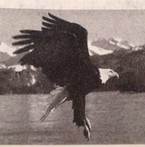题目内容
One summer vacation in my college, my roommate Ted asked to me to work on his father’s farm in Argentina. The idea was exciting. Then I had second thoughts. I had never been far from New England, and I had been homesick my first few weeks at college. What about the language? The more I thought about it, the more the idea worried me.
Finally, I turned down the invitation. Then I realized I had turned down something I wanted to do because I was scared and felt depressed(沮丧). That experience taught me a valuable lesson and I developed a rule for myself: do what makes you anxious(焦虑); don’t do what makes you depressed.
In my senior year, I wanted to be a writer. But my professor wanted me to teach. I hesitated. The idea of writing was much scarier than spending a summer in Argentina. Back and forth I went, making my decision, unmaking it. Suddenly I realized that every time I gave up the idea of writing, that downhearted feeling went through me.
Giving up writing really depressed me. Then I learned another lesson. To avoid the depression meant having to bear much worry and concern.
When I first began writing articles, I often interviewed big names. Before each interview I would get butterflies in the stomach. One of them was the great composer Duke Ellington. On the stage and on television, he seemed very confident. Then I learned Ellington still got stage fright(害怕). If Ellington still had anxiety attacks, how could I avoid them? I went on doing those frightening interviews. Little by little, I was even looking forward to the interviews. Where were those butterflies?
In truth, they were still there, but fewer of them. I had learned from a process psychologists(心理学家) call “extinction”. If you put an individual in an anxious situation often, finally there isn’t anything to be worried about, which brings me to a conclusion: you’ll never get rid of anxiety by avoiding the things that caused it.
The point is that the new, the different, is definitely scary. But each time you try something, you learn, and as the learning piles up, the world opens to you.
小题1:We can infer from the passage that the author________.
小题2:What does the word “extinction” in Paragraph 6 means?
小题3:Which of the following opinions does the writer probably accept?
小题4:What's the best title for the passage?
Finally, I turned down the invitation. Then I realized I had turned down something I wanted to do because I was scared and felt depressed(沮丧). That experience taught me a valuable lesson and I developed a rule for myself: do what makes you anxious(焦虑); don’t do what makes you depressed.
In my senior year, I wanted to be a writer. But my professor wanted me to teach. I hesitated. The idea of writing was much scarier than spending a summer in Argentina. Back and forth I went, making my decision, unmaking it. Suddenly I realized that every time I gave up the idea of writing, that downhearted feeling went through me.
Giving up writing really depressed me. Then I learned another lesson. To avoid the depression meant having to bear much worry and concern.
When I first began writing articles, I often interviewed big names. Before each interview I would get butterflies in the stomach. One of them was the great composer Duke Ellington. On the stage and on television, he seemed very confident. Then I learned Ellington still got stage fright(害怕). If Ellington still had anxiety attacks, how could I avoid them? I went on doing those frightening interviews. Little by little, I was even looking forward to the interviews. Where were those butterflies?
In truth, they were still there, but fewer of them. I had learned from a process psychologists(心理学家) call “extinction”. If you put an individual in an anxious situation often, finally there isn’t anything to be worried about, which brings me to a conclusion: you’ll never get rid of anxiety by avoiding the things that caused it.
The point is that the new, the different, is definitely scary. But each time you try something, you learn, and as the learning piles up, the world opens to you.
小题1:We can infer from the passage that the author________.
| A.finds it difficult to make decision |
| B.has found out what causes anxiety |
| C.was encouraged by Duke Ellington’s stage fright |
| D.no longer feels anxious about new experiences |
| A.a person’s loss of confidence little by little |
| B.the natural development of a child’s abilities |
| C.the inborn ability to avoid anxious situations |
| D.the process of losing fear by keeping facing anxiety |
| A.Anxiety can be a positive drive |
| B.Hesitation leads to depression. |
| C.Avoiding anxiety reduces depression. |
| D.Depression is a signal that one is growing up. |
| A.Confidence: Key to Success |
| B.Anxiety: Challenge by Another Name |
| C.Depression: A Psychological Appearance |
| D.Success: A Trip Through Anxiety and Depression |
小题1:C
小题2:D
小题3:A
小题4:B
试题分析:作者写这篇文章主要是想告诉我们焦虑其实是驱使我们前进的动力,每一次如果你想尝试一些新的事情,你应该一点点的学习,最终整个世界就会向你敞开。
小题1:细节题。根据文章Then I learned Ellington still got stage fright(害怕). If Ellington still had anxiety attacks, how could I avoid them? I went on doing those frightening interviews. Little by little, I was even looking forward to the interviews. Where were those butterflies?可知,作者了解到Duke Ellington仍然有舞台恐惧,所以从中受到鼓舞,继续做他的采访。故选C
小题2:推断题。根据文章In truth, they were still there, but fewer of them. I had learned from a process psychologists(心理学家) call “extinction”.可知,extinction的意思是通过面对这些令人焦虑的事情,使人慢慢减少恐惧的过程。故选D
小题3:细节题。根据文章可知, you’ll never get rid of anxiety by avoiding the things that caused it. 作者最终了解到焦虑是一个积极的前进驱动力。故选A
小题4:主旨题。作者写这篇文章主要是想告诉我们焦虑其实是驱使我们前进的动力。故选B
点评:对于本文的阅读,学生应该理解好文章的介绍核心和作者的写作思路。此类文章不长,学生在答题的过程中可以首先对整篇文章进行阅读,理解文章的意思,然后带着问题在文章中找到相对应的答案,即可答出。

练习册系列答案
 阅读快车系列答案
阅读快车系列答案
相关题目
